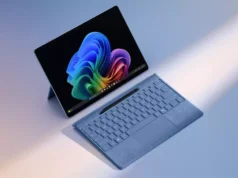Apple could face up to $862 million in damages for infringing patents that improve the performance of its microprocessors. As the US District Court decided this week that the iPhone maker is guilty of using a 1998 patent held by University of Wisconsin’s non-profit patent management body WARF.
The Wisconsin Alumni Research Foundation (WARF) sued Apple in January last year, claiming that the company had infringed upon WARF patents, pertaining to the A7, A8 and A8X chipsets found on the iPhone 5S, iPhone 6, iPhone 6 Plus, along with a slew of iPad models
Though Apple has denied that any patent infringement accusations and claims that the patent was invalid. The company even tried to find an escape route as it tried persuading the US Patent and Trademark Office to review it, though to no avail. As the jury in Madison Wisconsin decided Apple had infringed upon the patent and deemed it as valid.
The court is now to decide how much amount Apple needs to pay in damages that could also be reduced on appeal. Though it could also go high if the court finds that the company has been deliberately infringing on these patents.
While things could also turn out rougher for Apple, as WARF last month filed a second lawsuit against the Cupertino giant’s latest A9 and A9X chipsets found on the iPhone 6S and iPhone 6S Plus along with the forthcoming iPad.
Apparently this is not the first time WARF has been fiercely taking a stand against tech giants for infringing its patents. As the group also sued Intel in the past over Core 2 Duo processors, which was settled out of court for an undisclosed amount.
Apple sells over 13 million iPhone 6s and iPhone 6s Plus in opening weekend record
Meanwhile, even Apple has also been fiercely fighting a patent war with Samsung. Back in 2012, Samsung was ordered to pay more than $1 billion in damages to Apple. The dispute also led to a ruling in the UK that ordered Apple to post a public apology to Samsung on its UK website. However, they have now decided to end all their international lawsuits reared to patent disputes. Though Apple still remains adamant that it’ll never drop the lawsuit against Samsung in its homeland.










